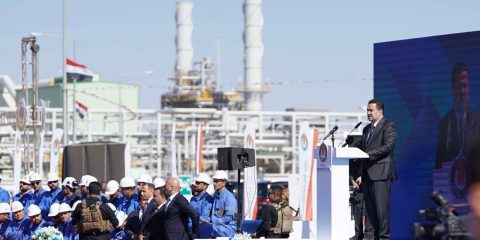More Than Militias: Iraq’s Popular Mobilization Forces Are Here To Stay
Over the last several years, I have met with commanders and fighters from Iraq’s Popular Mobilization Forces (al-hashd al-sha’abi, or PMF), an umbrella organization of some 50 paramilitary groups, to hear about their perspectives on the situation in Iraq. Last month, I re-visited a leader whom I hadn’t seen in some time. As I walked […]Renad Mansour writes for War on the Rocks:
Over the last several years, I have met with commanders and fighters from Iraq’s Popular Mobilization Forces (al-hashd al-sha’abi, or PMF), an umbrella organization of some 50 paramilitary groups, to hear about their perspectives on the situation in Iraq. Last month, I re-visited a leader whom I hadn’t seen in some time. As I walked into the room, I noticed that he no longer wore army fatigues — instead, he was in a suit. He joked that things had changed, and he was now returning to politics.
He is not the only one. The PMF have become much more than a group of militias, now seeking to establish a legitimate institutional presence and play a role in politics and the economy, against the backdrop of a fragile Iraqi state that remains weak after the fall of ISIL.
A critical aspect of the state rebuilding process is reforming the security sector, which collapsed in 2014 when a few thousand fighters took over one-third of Iraq. During the 3-year fight against ISIL, a number of armed groups — united in opposition to a common enemy but not in command structure or vision — emerged in place of the struggling state armed forces. Although the Iraqi armed forces have since recovered, the state’s weakness has allowed many of these paramilitary groups continue to control territory in liberated areas from Mosul to Kirkuk.





